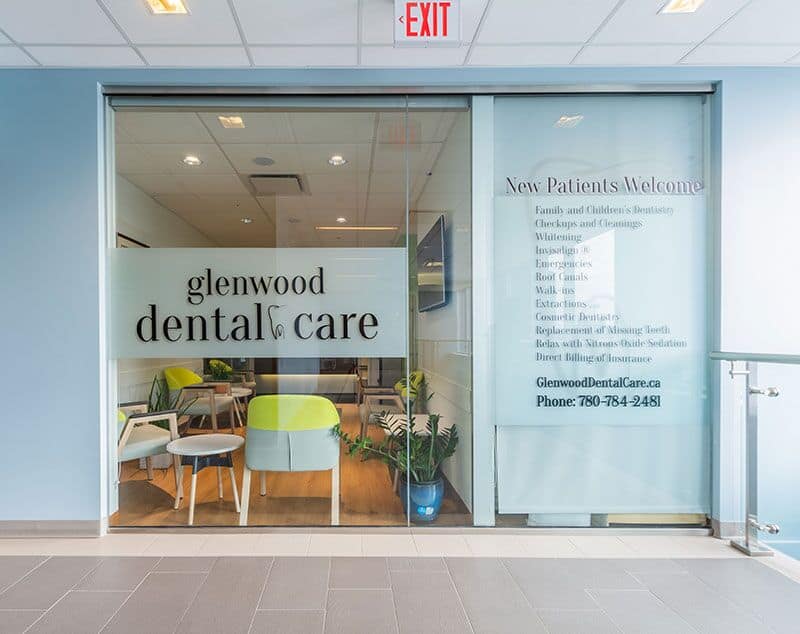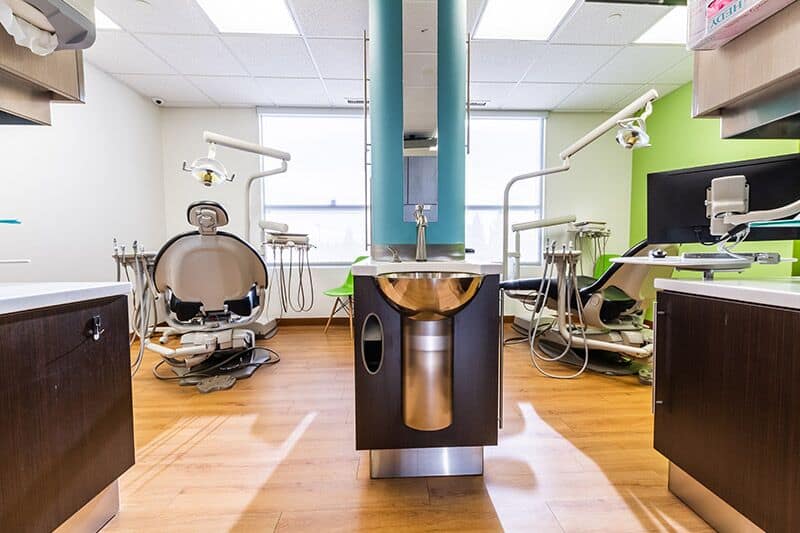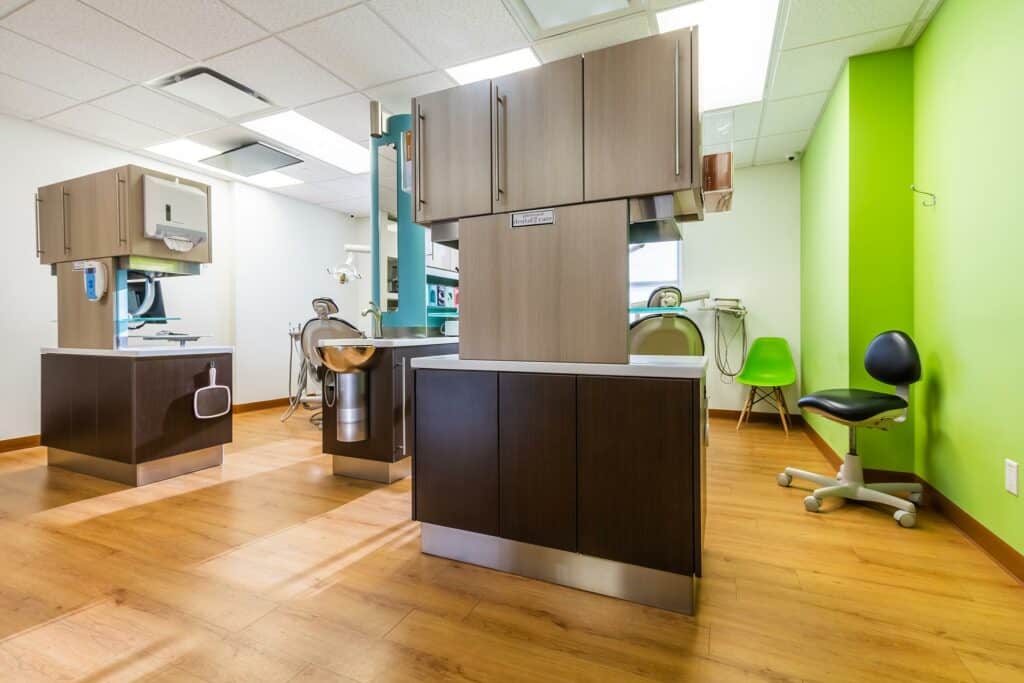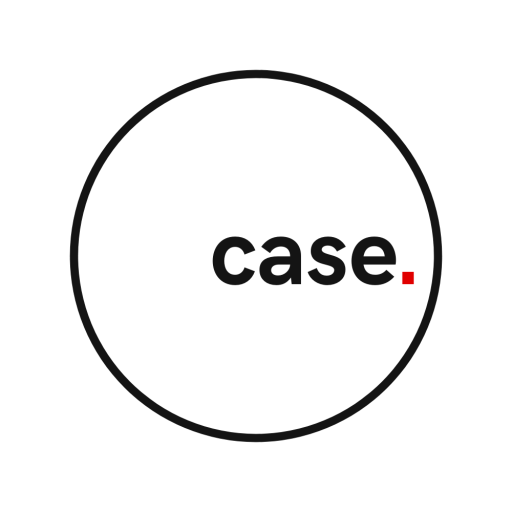Maintaining optimal oral hygiene is vital for your child’s overall health. As a parent, you keep track of your child’s first words, first steps, first smile, and first tooth, but what about their first visit to a dentist in West Edmonton? Your child’s oral health journey begins from birth, and developing a strong oral health routine from a young age will set your child up for excellent oral health for life.
In this blog post, our team at Glenwood Dental Care tells you everything you need to know to ensure that your little one maintains excellent oral health throughout their lifetime.
When To Expect Your Child to Begin Teething
Teething is an essential part of your child’s oral health development, both for their speaking skills and ability to eat and grow. However, teething isn’t the most fun for a baby or parent. Teething is the process of new teeth erupting above the gum line. Teething symptoms include excessive chewing, drooling, swollen or red gums, fussiness, and lack of sleep. To help ease the pain associated with teething, allow your child to chew on a cool teething ring.
The majority of infants begin to teethe around 4-7 months of age, but some begin earlier or later. Most children get their first tooth around eight months. If your child has not had their first tooth erupt by the time they reach 18 months, speak to a dentist near you.
When Should Your Child First Start Seeing a Dentist?
It is important to get your child involved with children’s dentistry in West Edmonton early in life. Once their first tooth comes in, you should book their first dental appointment. Their dentist will examine their mouth and determine their oral hygiene and risk of tooth decay. As a parent, you should regularly check your child’s gums from birth to ensure that there are no early signs of tooth decay, such as brown or white spots.
After your first visit to a dentist, you should bring your child back for a checkup at least once every six months. Some children will require more frequent visits at first, such as every three months, depending on their oral health status.
When Should You Start Brushing Your Child’s Teeth?
It would be best if you started your child’s oral hygiene routine from birth by cleaning their gums after their feedings using a clean, warm washcloth and some water. Once your child’s first tooth emerges, brush it with a soft-bristled toothbrush and no toothpaste.
As they develop more teeth, their dentist will help guide you on the best practices for ensuring their oral hygiene remains excellent. Typically, by the time your child reaches the age of two, you should begin brushing their teeth using a tiny amount of fluoridated toothpaste. Ensure to carefully monitor your child, so they do not swallow any toothpaste.
Visit Glenwood Dental Care
If you would like to learn more about children’s dentistry near you, please do not hesitate to contact our dedicated team of dental professionals at Glenwood Dental Care. We are happy to provide your little ones with the best dental care possible. Please contact us to book your child’s first dental visit today. We cannot wait to see their beautiful smile.







